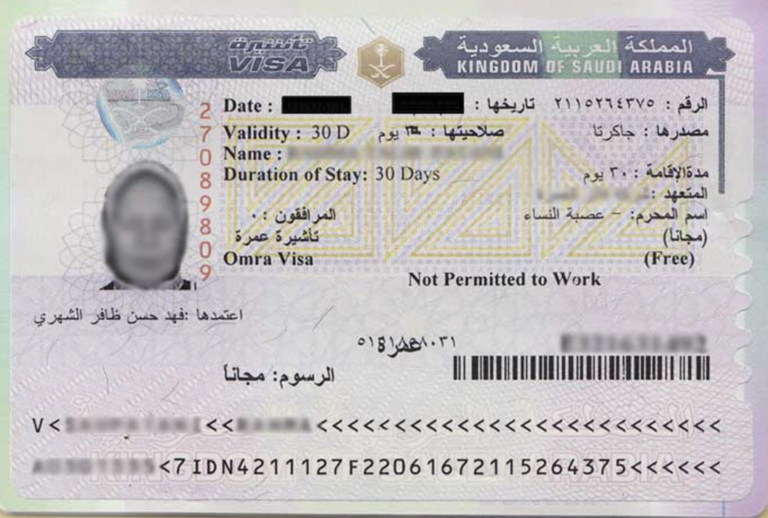The Basics of Fiqh: A Guide for Beginners
Ever wondered how Muslims follow Islamic principles in daily life? Fiqh is the key to understanding Islamic law. This guide will help beginners learn the basics of Shariah principles.
Fiqh is like a guide for Muslims, showing them what to do and what not to do. It’s more than just rules; it’s about following Allah’s commands. The Prophet Muhammad said, “If Allah intends goodness for someone, he gives him understanding of the religion.”
Exploring Islamic jurisprudence, you’ll find Fiqh is a core part of Islam. It’s alongside Aqeedah (beliefs) and Tasawwuf (self-purification). This journey brings you closer to Allah and helps you make better choices every day.
Even though Arabic is the traditional language, don’t worry. Many Fiqh resources are in English, making it easy for learners everywhere. Studying Fiqh is a lifelong journey that deepens your understanding of Islam and boosts your faith.
Key Takeaways
- Fiqh is essential for understanding Islamic law and practice
- It guides Muslims in recognizing permissible and impermissible actions
- Studying Fiqh brings one closer to Allah
- Fiqh is one of the three components of Islam
- Resources for learning Fiqh are available in various languages
- Understanding Fiqh is a lifelong journey of spiritual growth
Introduction to Islamic Jurisprudence
Islamic jurisprudence is the core of Islamic law. It helps us understand and live by religious rules every day. The Arabic word “fiqh” means “to understand and comprehend.” It specifically deals with the practical legal rules from detailed evidence.
Definition of Fiqh
Fiqh is the study of Islamic law and how to apply it. It involves understanding the Quran and Sunnah to make legal decisions. This requires knowledge in theology, logic, and Arabic.
The main aim of fiqh is to protect important values like faith, justice, and family.
Importance of Fiqh in Islamic Practice
Knowing fiqh is key for Muslims. It helps them understand religious texts and scholars’ views. It also shows how Islamic law has developed.
Fiqh helps the Muslim community apply religious rules in daily life. A Mujtahid, or someone skilled in fiqh, is crucial in making and applying Islamic law.
Historical Development of Fiqh
The history of Islamic law spans four eras from 610 CE to 1000 CE. It started with the Prophet Muhammad, who introduced monotheism and basic laws. The era of the Caliphs saw the growth of new legal methods like Ijma’ and Ijtihad.
These methods helped create laws not directly mentioned in the Quran or Sunnah. The study of Usul al-Fiqh became vital to avoid misinterpreting Islamic law. It ensures only qualified people can accurately apply religious texts.
Today, Islamic jurisprudence keeps evolving, tackling modern issues while staying true to its roots.
Sources of Islamic Law
Islamic law comes from several important sources. The Quran is the main source. It was given to Prophet Muhammad over 23 years, covering many topics. It was compiled during Abu Bakr’s time and spread by Uthman in the 7th century.
The Sunnah is also crucial. It includes the Prophet’s words, actions, and approvals. Scholars started collecting and editing these sayings in the mid-8th century. They used special methods to keep them accurate.
When the Quran and Sunnah don’t directly answer a question, scholars look at other sources. These include:
- Ijma: Consensus among Muslim scholars on legal questions
- Qiyas: Analogical reasoning to derive rules from existing sources
- Urf: Customs and traditions referenced in the Quran
Islamic law also considers public interest (Istislah) and juristic preference (Istihsan). These sources help create a complete system of Islamic law. They guide Muslims in their daily lives and religious practices.
The Four Sunni Schools of Fiqh
Islamic law shapes the lives of Muslims everywhere. The four Sunni schools of fiqh have developed over time. They guide believers in their religious practices.
Hanafi School
The Hanafi school was founded by Imam Abu Hanifa. It’s the oldest and most followed, with about 30% of Sunni Muslims following it. It’s popular in Turkey, Afghanistan, and parts of Iran.
This school is known for its liberal approach. It emphasizes reasoning and analogy in understanding Islamic law.
Maliki School
The Maliki school started in Medina, founded by Imam Malik ibn Anas. It’s big in North and West Africa, and Upper Egypt. This school values the practices of Medina’s people and scholar consensus.
Shafi’i School
Imam Muhammad ibn Idris al-Shafi’i founded the Shafi’i school. It balances between the Hanafi and Maliki schools. It’s followed in Egypt, Indonesia, and parts of the Arabian Peninsula.
The Shafi’i school is known for its systematic approach to Islamic law.
Hanbali School
The Hanbali school was started by Imam Ahmad ibn Hanbal. It’s the most conservative, mainly followed in Saudi Arabia and Qatar. This school sticks to a literal Quran and Hadith interpretation, using less analogy.
Each school offers its own view on Islamic law. They provide a rich variety of Islamic jurisprudence for Muslims to follow.
Key Concepts in Fiqh
Islamic law helps Muslims live their lives. It teaches them what is good, necessary, or wrong to do. This knowledge is key to following their faith.
Halal and Haram
Halal means what’s okay in Islam. Haram means what’s not allowed. These ideas help Muslims choose right from wrong, from what to eat to how to work.
Fard and Wajib
Fard are important duties in Islam. These include praying five times a day and fasting in Ramadan. Wajib is similar but can mean different things to different people.
Sunnah and Mustahab
Sunnah are the ways and teachings of Prophet Muhammad. Mustahab are acts that are good to do but not required. Doing them brings blessings.
Makruh and Haram
Makruh are actions that are not good but not forbidden. Haram, however, are acts that are strictly not allowed. Knowing the difference helps Muslims make good choices every day.
- Fard: Obligatory acts like daily prayers
- Sunnah: Prophetic traditions to follow
- Halal: Permissible actions in Islam
- Haram: Strictly forbidden acts
Understanding these concepts helps Muslims deal with Islamic law’s complexities. They can apply its teachings in their daily lives.
Fiqh of Purification (Tahara)
Purification is key in Islamic law. The Prophet said, “Cleanliness is half of faith.” It’s not just about being clean physically, but also spiritually.
In Ibadah (acts of worship), getting rid of both seen and unseen dirt is important. Scholars have identified three types of water for cleaning:
- Purifying water
- Pure water
- Impure water
The Quran and Sunnah guide us on water purity. For example, AlAnfal: 11 talks about using rain for cleaning. There are rules about how much water is needed and how it deals with dirt.
Islamic law breaks down purification into three main areas:
- Ghusl: Purification from major ritual impurity
- Tayammum: Alternative method when water is unavailable
- Wudu: Purification from minor ritual impurity
There are rules for bathroom behavior, like praying before going in and how to use your feet. It’s important to face the qiblah when you go to the bathroom, as it’s not good to do otherwise.
“Purification is the key to prayer, and prayer is the key to Paradise.”
Knowing these rules is vital for Muslims to do their daily prayers right. It helps keep their spirit clean.
Fiqh of Prayer (Salah)
Prayer, or Salah, is a key part of a Muslim’s day. It’s a vital act of worship that follows strict rules. Let’s look at the main parts of Salah to help beginners see its importance and how to do it right.
Obligatory Acts of Prayer
Salah has several must-do parts:
- Reciting Surah Al-Fatiha in every rakat
- Performing ruku (bowing) and sujood (prostration)
- Maintaining proper clothing: males cover navel to knees, females cover entire body except hands and face
- Facing the Qibla (direction of Mecca)
- Observing prescribed prayer times
Recommended Acts of Prayer
To make prayer better, Muslims should:
- Recite more Quranic verses after Al-Fatiha
- Say “Allahu Akbar” when moving between positions
- Recite special prayers at different times
- Do extra prayers (nafl) besides the required ones
Nullifiers of Prayer
Some actions can make prayer invalid:
- Intentionally speaking during prayer
- Eating or drinking
- Excessive movement not part of prayer
- Laughing out loud
- Breaking wudu (ablution)
Knowing these parts of Salah helps Muslims do it right. It follows the rules of Shariah and deepens their bond with Allah.
Fiqh of Fasting (Sawm)
Fasting in Ramadan is a key act of worship in Islam. It’s one of the five pillars of Islam, as Abdullah ibn Umar ibn al-Khattab said. This practice started in the second year after the Hijra.
Islamic law has rules for fasting. People who are sane, old enough, and healthy must fast. Puberty is when boys have wet dreams or girls have their first period. Some groups, like menstruating women and the sick, don’t have to fast.
There are nine types of fasts in Islamic law. Each has its own rules. For example, you must intend to fast for it to count.
- Fasting is not allowed on Eid days and the three days after Eid al Adha
- You can’t fast from the 15th of Sha’baan until Ramadan starts
- If the new moon’s sighting is unsure, it’s not a fasting day
Children should start fasting at seven. By ten, they can fast the whole day. The Prophet fasted nine Ramadans, with one being 30 days and the others 29.
The integrals of fasting are two: the intention and refraining from those things that nullify the fast.
Knowing these rules helps Muslims do this important act of worship right. It lets them enjoy its spiritual benefits.
Conclusion
Fiqh, or Islamic jurisprudence, is a guide for beginners. It helps them understand Islamic practices. It covers actions from obligatory (Fard) to prohibited (Haram), helping Muslims in their daily lives.
Fiqh is dynamic, with different interpretations within agreed-upon principles. This makes Islam flexible yet keeps its core values. For example, the Hanafi school, founded by Imam Abu Hanifa, is followed by about 55% of Muslims worldwide.
In this guide for beginners, we’ve looked at important topics like purification, prayer, and fasting. Remember, fiqh is often based on probability, with scholars sometimes disagreeing. This diversity is seen as a mercy, allowing for practical application of Islamic principles in various situations.
Learning and consulting with knowledgeable scholars is key to understanding fiqh. By doing this, Muslims can apply Islamic jurisprudence in their daily lives. This helps them practice their faith in a balanced and informed way.
Source Links
- A Beginner’s Guide to Hawza Studies: A Compilation of English-Language Resources
- Study guide: Hanbali reference books | Musa Furber
- Beginners – Salafi Bookstore UK
- Foundations and Principles: An Introduction to Islamic Jurisprudence & A Brief Comparison to American Jurisprudence
- Intro. to Islamic Jurisprudence (L-01).pptx
- Sources of Islamic Law – Islamic Labour Code
- The History and Sources of Islamic Law
- A roadmap for studying fiqh of the four sunni schools || Australian Islamic Library
- Fiqh
- Four Schools of Sunni Sharia
- Key concepts of Fiqh and Usul al-Fiqh – SimplyIslam Academy
- IQRA Network
- Fiqh of Tahara
- How To Pray Salah – A New Muslim’s Guide
- Step By Step Guide to the Prayer
- How to Pray in Islam: Step-By-Step Guide to Solat for Beginners
- The Complete Guide to Fasting
- The Fiqh of Fasting Ramadan According to the School of Imam Shafi’i
- Fiqh for beginners
- Fiqh – Islamic Self Help







